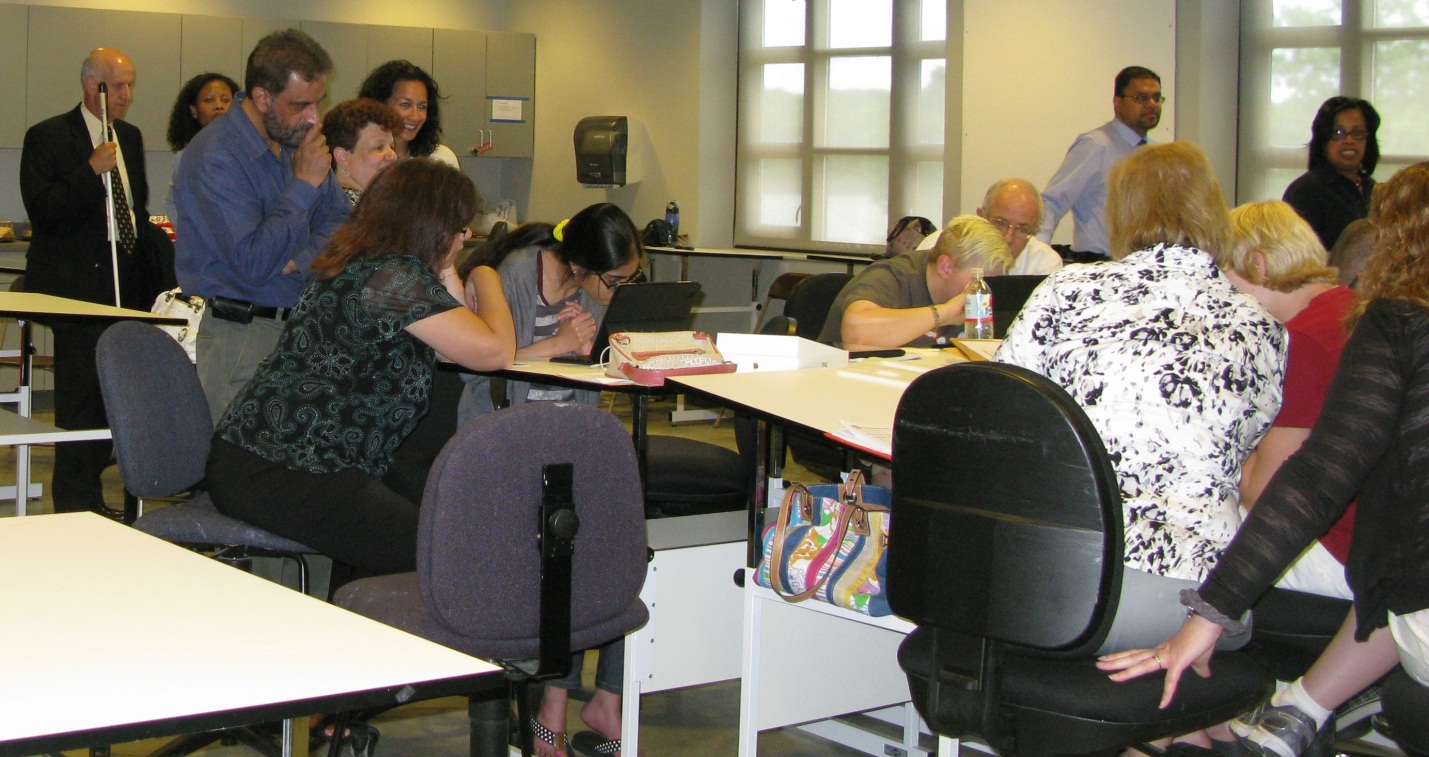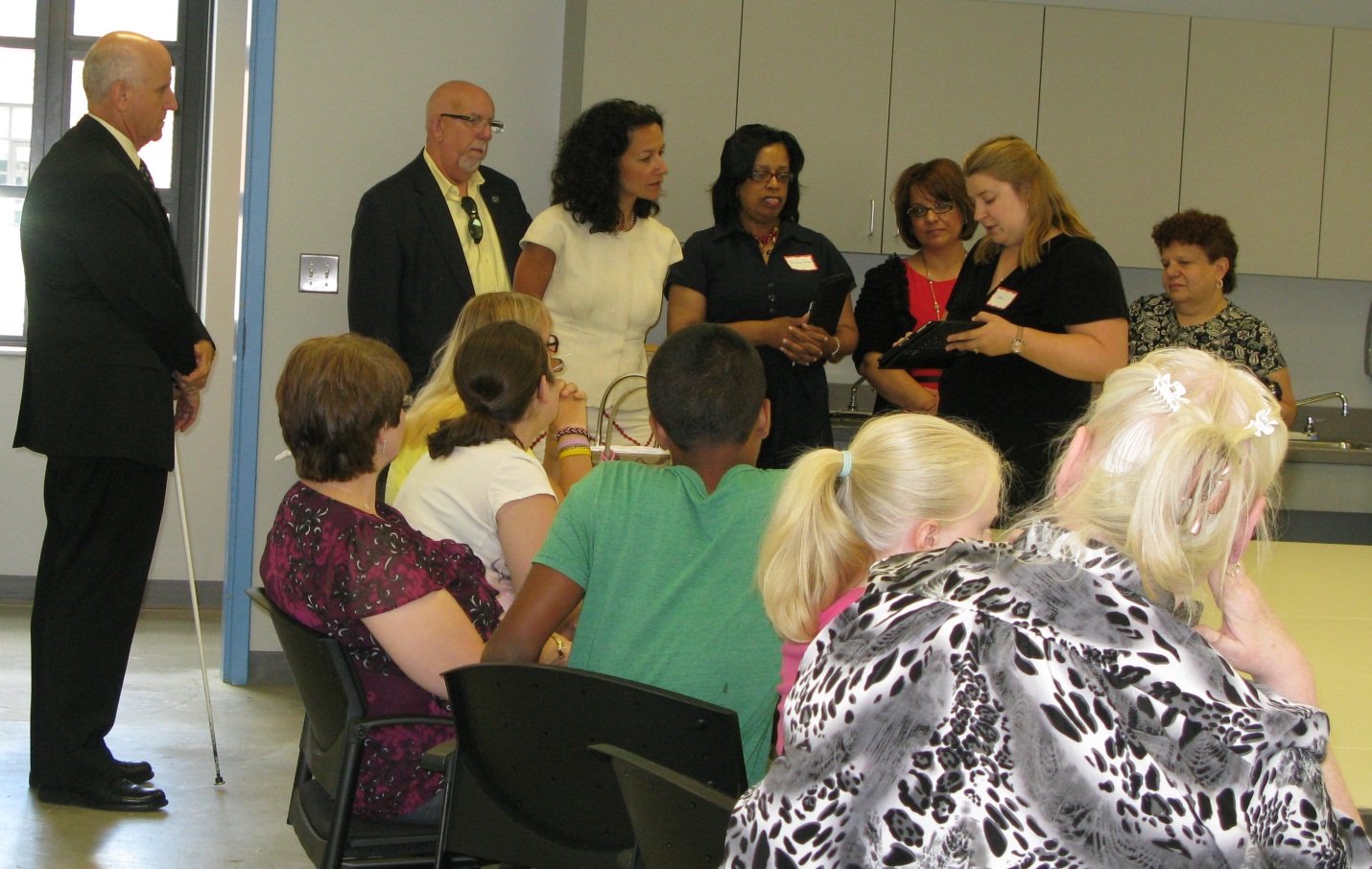“Technology has really advanced our ability to serve these students in an improved and more efficient way,” said Commissioner Velez. “Gone are the heavy backpacks with subdivided, large- print books. Today, we’re ushering in a new era of service to our students.”
Many high school text books, once converted to large print, can turn into three or more weighty chapter volumes. Multiply that by the number of books the average high-schooler requires in each class, the load can be cumbersome and create learning obstacles. The pilot program will replace the need for costly text enlargement and printing expenditures that in FY’ 12 cost CBVI an estimated $100,000.
“The Commission is eager to explore the viability of this single piece of technology as a learning tool for our students,” said Vito DeSantis, Executive Director of the CBVI. “The Commission continues to evolve services, as appropriate, to ensure students’ academic success.”
The students and their families attended the training on how to use the iPAD with the assistance of the CBVI teaching staff. The Commission provides educational services from birth through high school years to eligible children and their families. These services are designed to empower students who are visually impaired to participate equally with other students in regular classroom activities. The effectiveness of the use of the iPAD as an electronic book reader will be evaluated throughout this year.
The training included hands on instruction during which the students learned proper care of the iPAD, how to operate the device, how to download useful applications, how to download books and how to use the tutorial websites.
CBVI was established in 1910, after Helen Keller lobbied the New Jersey Legislature to develop and organize a state agency for residents who have vision loss. The Commission provides a variety of services, including educational, employment and independence training as well as prevention of vision loss and eye health.
For eligible students, CBVI teachers of the blind or partially sighted provide educational instruction up to the age of 21. CBVI contracts with local school districts to provide comprehensive services, including the assessment and evaluation of a student’s visual abilities, and when applicable, provides instruction in Braille and related skills.
CBVI also will loan local school districts appropriate adaptive equipment and make aides and special educational materials available.

